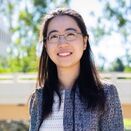Sponsored by the University of California, Irvine and the Spencer Foundation
Pens & Pixels: Generative AI in Education
July 13, 2023 @ 9:00 am - 3:00 pm PST
CLICK HERE TO REGISTER FOR THE CONFERENCE
CLICK HERE TO REGISTER FOR THE CONFERENCE
Speakers
|
Stephen Aguilar is an Assistant Professor of Education in the Educational Psychology concentration at the USC Rossier School of Education. His research focuses on investigating how educational technologies—both emerging and established—influence teaching, learning, and motivation. To this end, Dr. Aguilar explores the impact of learning analytics, generative AI in educational settings, the digital equity gap, and gameful approaches to teaching and learning. Currently, he is co-leading USC’s new Center for Generative AI and Society’s efforts to understand when and how generative AI is used by students and instructors in post-secondary settings.
|
|
AJ Alvero is a computational social scientist at the University of Florida Department of Sociology, Criminology & Law. His primary interests are in language, race/ethnicity, culture, and education. His current research uses computational techniques to analyze college admissions essays and model the social patterns within them. Prior to entering academia, AJ was a high school teacher in Miami, FL.
|
|
Cindy Berger is a Lead Learning Designer/Senior Learning Design Manager at Duolingo, where she works on Roleplay, a GPT-4-powered interactive feature that allows learners to practice real-world conversation skills. She also manages the group of pedagogical experts working to develop discourse-level content across Duolingo. Cindy has a PhD in Applied Linguistics and an MFA in Creative Writing.
|
|
Scott Crossley is a professor of special education at Vanderbilt Peabody College. His research focuses on using data science and artificial intelligence to explore cognition, with an emphasis on natural language processing. Crossley is excited by the opportunities computational linguistics affords for better understanding and engaging student success in the classroom.
|
|
Dora Demszky is an Assistant Professor in Education Data Science at Stanford University. Her research focuses on measuring equity, representation and student-centeredness in educational texts, with the goal of providing insights to educators to improve instruction. She develops measures based on natural language processing that work well for high-dimensional, unstructured data, and she applies these measures to provide feedback to educators.
|
|
Qian Du is an Associate Professor of Teaching and Associate Director in the Program in Global Languages and Communication at the University of California, Irvine. She teaches academic writing, reading, and oral communication courses for multilingual undergraduate and graduate students. Her research interests include English for academic purposes, second language writing, intercultural rhetoric, reading-writing connections, and teacher education.
|
|
Sarah Levine researches the links between in- and out-of-school interpretive practices in language arts teaching and learning. Levine is also interested in ways that AI and digital media (for example, natural language processing models, like ChatGPT) can be used as frameworks for teaching reading and writing to middle and high school students. Before pursuing an academic career, she taught secondary English at a Chicago public school for ten years.
|
|
Elizabeth Birr Moje is dean, George Herbert Mead Collegiate Professor of Education, and an Arthur F. Thurnau Professor of Literacy, Language, and Culture in the Marsal Family School of Education at the University of Michigan. Moje teaches courses in secondary and adolescent literacy, cultural theory, and research methods. A former high school history and biology teacher, Moje’s research examines young people’s culture, identity, and literacy learning in and out of school in Detroit, Michigan.
|
|
Tamara Tate is a Project Scientist at the University of California, Irvine, and Associate Director of the Digital Learning Lab. She leads the Lab's work on digital and online tools to support teaching and learning. She studies secondary student writing as a member of the IES-funded national WRITE Center. Current research involving generative AI includes a comparison of human and AI scoring and feedback, and use within K-12 and undergraduate classrooms to improve student writing.
|
|
Mark Warschauer is a Professor of Education at UC Irvine with an affiliated appointment in Informatics, and director of the Digital Learning Lab. He is one of the most widely-cited scholars in the world on digital learning topics such as digital literacy, the digital divide, one-to-one laptop classrooms, and artificial intelligence in education. In addition to generative AI, his team is currently focusing on the use of conversational agents to support children’s learning and on the teaching and learning of computer science for linguistically diverse students.
|
|
Marcelo Worsley is an Assistant Professor of Learning Sciences and Computer Science at Northwestern's School of Education and Social Policy and the McCormick School of Engineering. He directs the technological innovations for inclusive learning and teaching (tiilt) lab, focused on pedagogical and technological solutions for supporting learning among diverse populations in hands-on, collaborative environments. He aims to advance society's understanding of how students learn in complex learning environments by forging new opportunities for using multimodal technology.
|
|
Ying Xu is an Assistant Professor of Learning Sciences & Technology in the Marsal Family School of Education at the University of Michigan. Her research focuses on the design and evaluation of technologies that promote language and literacy development, STEM learning, and wellbeing for children and families. Xu’s current projects include education applications of artificial intelligence (natural language processing and speech technologies) and how conversational technologies can play the role of social partners or learning companions for children.
|
|
David Yeager is an Associate Professor of Psychology at the University of Texas at Austin. His work focuses on understanding the processes shaping adolescent development, especially how social cognitive factors interact with structural and physiological factors to create positive or negative trajectories for youth. Yeager is exploring how chatbots can respond to students’ messages about their emotional state and motivation in a way that is supportive, empathetic, and most likely to lead to positive outcomes.
|













